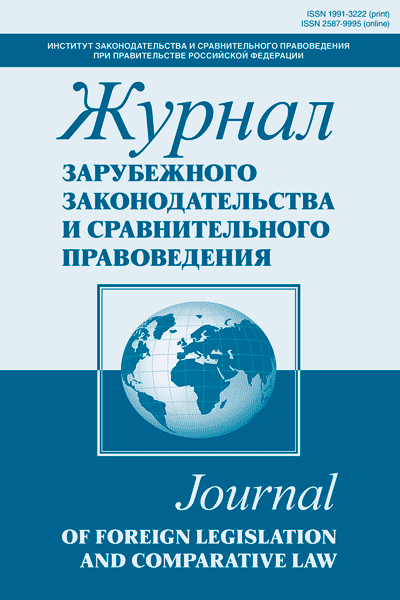The article deals with the issues of the delineation of authority between Federal legislative bodies and legislative bodies of the provinces and territories in the sphere of child protection from the domestic violence. The author analyzes the area of competence of the legislative bodies of mentioned levels, paying particular attention to their complementarity and possible conflicts between rules. In accordance with the Constitution of Canada the Federal, provincial and territorial governments have a shared responsibility for many aspects concerning the situation of children in society. However, criminalization of some unlawful acts, including the act of domestic violence, is an exclusive scope of jurisdiction of Federal agencies. On the basis of the analysis of the amendments to the criminal code of Canada the author comes to the conclusion that the Federal government is moving towards stricter sanctions for crimes related to domestic violence that target children. On the basis of detailed analysis of normative legal acts of the provinces and territories regulating social relations in the sphere of combating domestic violence and child protection the author concludes that the provincial laws on protection against domestic violence are intended to support and complement the Federal measures to protect victims of domestic violence under the criminal code of Canada. In general, provinces and territories have extensive regulatory framework in this area that allows to pursue a consistent policy aimed at improving the retaliatory measures against domestic violence, when the victims are children, as well as the maximum leveling of the consequences of such acts.
domestic violence, victim, Canada, child protection, responsibility, crime.
1. Domashnee nasilie po zakonodatel´stvu zarubezhnykh stran: otvetstvennost´ i preventsiya / otv. red. N. A. Golovanova. M., 2011.





